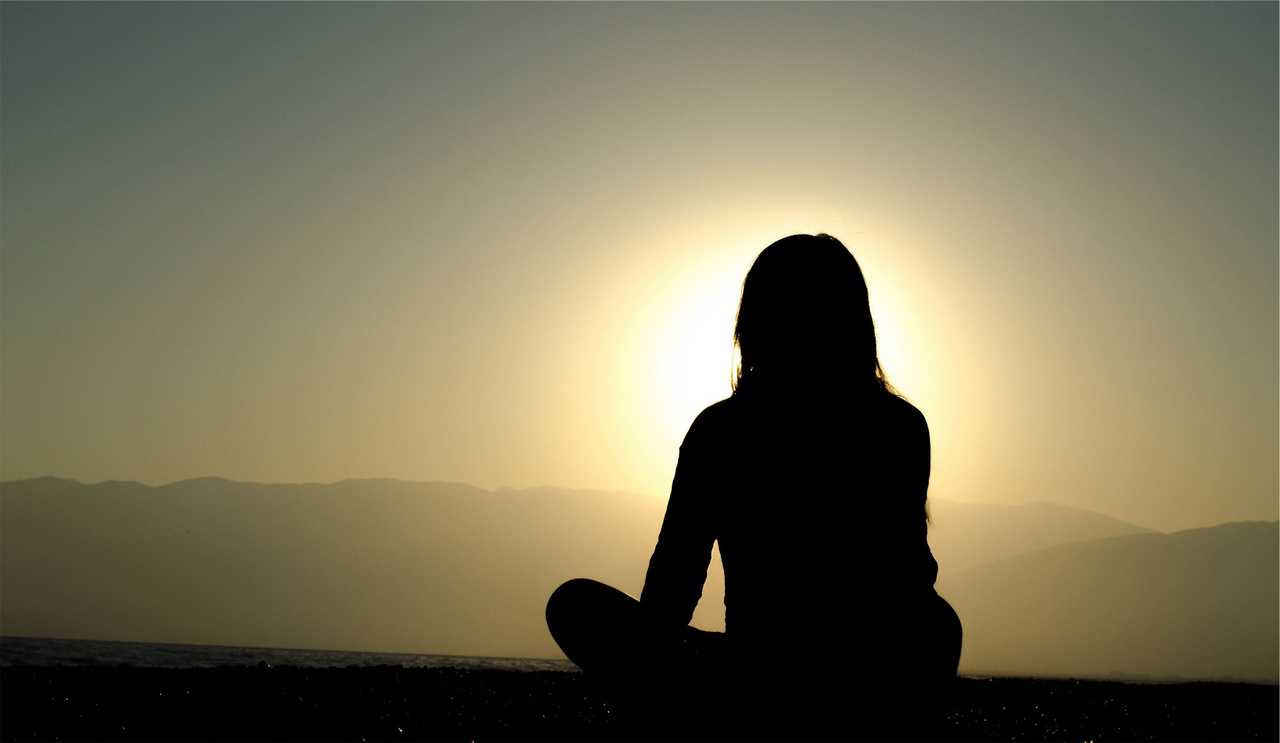Abide in the Unborn

Two experiences come to mind from the retreat:
One morning as I walked outside the Chan hall, I observed 15 to 20 birds darting in and out of trees in unison as they flew up the hill. I felt a sudden jolt, like someone had thrust a knife into my heart. "Huh!" I gasped. But, it was not pain that I felt, it was pure, intense joy. I'm not exactly sure what happened but, in a way, I became those birds. I didn't see through their eyes or enter their bodies, but at that moment, our hearts united.
One afternoon, I walked half way up the hill behind the house and sat down amongst the grass and ferns. It was such a peaceful and still afternoon. As I looked across at the sunlight filtering through the trees, the beams of light illuminated hundreds or thousands of flying insects of one kind or another. As I looked down at the ground around me, I became aware that this 1 cubic metre of space was teeming with life. The problems of the human world did not seem so important. My heart felt warm and full of hope. I took comfort in the thought that no matter what happens in this world, even if we humans destroy ourselves and our habitat, nature would find a way, life would go on.
I'd been working with the Hua-tou:
'It's not the Buddha, it's not the self, it's not the mind, it's not a thought, it's nothing at all; what is it?'
This Hua-tou was a continuation of the practice I had adopted since the Korean Zen retreat I attended the previous month where I practiced with the Hua-tou: 'What is this?'
However, I found this longer Hua-tou such a useful tool, it was so liberating. It enabled me to let go of all accumulated knowledge, all views, and all grasping after understanding so that I could drop into bare awareness. This state could be maintained by the silent enquiry 'What is it?'
So, what is it?
You could say that 'it' is bare awareness or bright clarity. You could call 'it' love. 'It' is a place where one can rest from past conditioning. 'It' is emancipation. 'It' is a source of constant nourishment. 'It' is this present moment free of labels or discrimination, free of knowledge and understanding, free of any contrived activity. 'It' is the unborn Buddha mind. But, 'it' is nothing special, 'it' is quite ordinary as every being already has 'it', 'it' is not something that needs to be attained. Yet, although ordinary, 'it' is wondrous. 'It' is that which is most immediate, most original. 'It' is the primary, the source, the essence of being. 'It' is this'.
These words and phrases may point to 'it', but none of them really capture 'it' as 'it' is beyond all words and labels as 'it' is not a thing. All these words and phrases really just smear 'it' with muck.
This was a really lovely retreat for me. I feel I have come full circle. I awoke initially to the principle 3-4 years ago whilst reading The Zen Teachings of Bodhidharma. As I read a paragraph from that book, my mind was purged of all thought and I sat in bare awareness and through this experience I came to see the illusory nature of thoughts and suffering. I then became attached to the teachings and read book after book, piling up knowledge. After a couple of years, I started doing retreats, experiencing new states of mind (one mind experiences, deep experiences of unity, and profound samadhi states). These retreats really helped to develop faith, compassion and Bodhichitta, but I also acquired a terrible sickness of seeking as desire and fell into confusion, a grasping to put it all together so I could understand. A couple more retreats addressed this seeking and finally during the Western Zen retreat in June I woke up to the preciousness of this present moment. But, delusion soon returned and I found myself on the Korean retreat trying hard to raise great doubt, intensely asking 'What is this?', whilst wanting 'that' (enlightenment). During this retreat I sort of felt that 'this' was 'that', but never quite clarified it. But, the seeds that were planted during the Korean retreat began to germinate during this retreat. John's wonderful talks added more water and I believe flowers are starting to open or at least, buds may be forming. I feel I have had a good introduction to Chan and now I can really start to investigate more thoroughly.
I continue to use this Hua-tou as well as simply asking 'What is this?' throughout the day as a continual wake up call. A phrase from Zen Master Bankei now seems important to me: Learn to abide in the unborn for 30 days, and from there on, even if you don't want to, whether you like it or not, you'll just naturally have to abide in the unborn. This is my next step, to find a way of doing a reasonably long, solitary retreat.
- Publication date:
- Modified date:
- Categories: 2009 Anonymous Koan Retreat Reports
-
 Western Chan Fellowship CIO
Western Chan Fellowship CIO - Link to this page
©Western Chan Fellowship CIO 1997-2026. May not be quoted for commercial purposes. Anyone wishing to quote for non-commercial purposes may seek permission from the WCF Secretary.
The articles on this website have been submitted by various authors. The views expressed do not necessarily represent the views of the Western Chan Fellowship.
Permalink: https://w-c-f.org/Q372-184
